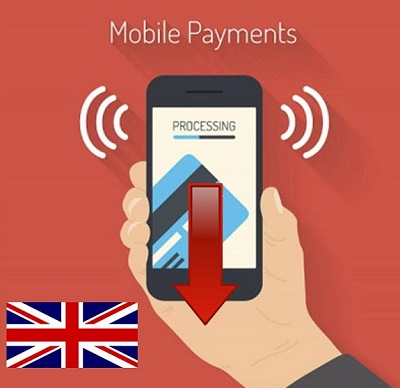Recent study finds that UK consumers are not sold on the idea of mobile commerce
Despite the fact that more businesses are beginning to enter the mobile commerce space, consumers in the United Kingdom may not be following suit. A recent study from eMarketer shows that many consumers are still not convinced that mobile payments are viable or convenient. A similar report from Bain & Co. found that only 3% of UK Internet users had used their mobile devices to pay for goods and services in February of 2014.
Mobile commerce remains an uncomfortable subject for many people
Mobile commerce is often praised for its convenient nature, but it also receives some harsh criticism because of the security issues that exist within the mobile space. Companies participating in mobile commerce have, to some degree, been the reason for this criticism. Some companies have tried to bring their own mobile payments platforms to the commercial market, but many of these platforms have been poorly designed and were crippled by serious security faults. Poor experiences have left many people with a sour opinion of mobile commerce, which is quickly becoming something that they want to avoid.
Consumer awareness of mobile services and payments is not lacking
 The study found that awareness is not a problem when it comes to mobile payments. Approximately 55% of consumers are aware of the mobile commerce services that are available to them, but few of these people are willing to participate in mobile commerce, favoring instead their credit cards and other traditional forms of commerce. Consumers also seem to be quite leery of the mobile commerce services that are available to them, especially those that involve the use of digital currency.
The study found that awareness is not a problem when it comes to mobile payments. Approximately 55% of consumers are aware of the mobile commerce services that are available to them, but few of these people are willing to participate in mobile commerce, favoring instead their credit cards and other traditional forms of commerce. Consumers also seem to be quite leery of the mobile commerce services that are available to them, especially those that involve the use of digital currency.
UK businesses must solve mobile security problems before consumers embrace mobile commerce
UK businesses have high hopes for mobile commerce, but whether these hopes will ever be actualized is difficult to say for sure. Currently, security is one of the most significant issues that the mobile commerce space is facing. If security issues cannot be resolved, consumers are unlikely to ever become supportive of mobile commerce.
Paym has ambitious plans for the future
Paym, a new mobile commerce platform, was recently launched in the United Kingdom and represents one of the most highly anticipated mobile services to be released in the country so far this year. The platform is backed by many of the United Kingdom’s largest financial institutions and this has allowed it to find early success where other, similar mobile commerce platforms have struggled to find traction with consumers. Paym’s ambition is to reach a significant user base by the end of the year in order to solidify its place as a leading platform in the mobile space, and it is already well on its way to achieving this goal.
Commerce platform already boasts of more than 7 million registered users
The service currently boasts of some 500,000 registered users through the nine banks that have partnered with Paym. These banks boast of a large pool of customers that are already making payments through Paym. The platform is specifically designed as a person-to-person payments service and has managed to acquire strong support from consumers as such. The Paym service is integrated into the mobile applications that are associated with its partnered banks and other organizations.
Platform manages to find favor with consumers despite crowded market
 The platform has received an overwhelming positive response from consumers in the short time after its release. This has provided the platform with the momentum it needs to compete against other services that exist in the mobile commerce sector. Both PayPal and Google have managed to establish a formidable presence when it comes to mobile payments, but these two companies are far from being considered the default mobile commerce service providers among consumers. Indeed, many people are happy to make use of a wide variety of mobile commerce services, moving from one service to the next as they see fit.
The platform has received an overwhelming positive response from consumers in the short time after its release. This has provided the platform with the momentum it needs to compete against other services that exist in the mobile commerce sector. Both PayPal and Google have managed to establish a formidable presence when it comes to mobile payments, but these two companies are far from being considered the default mobile commerce service providers among consumers. Indeed, many people are happy to make use of a wide variety of mobile commerce services, moving from one service to the next as they see fit.
Small firms fight for the attention of consumers
As mobile shopping continues to grow in popularity in the United Kingdom, it is likely that the market will continue to be flooded with new and ambitious mobile services. These services will compete with one another and likely die out due to a lack of exposure. Large organizations, such as PayPal, are able to avoid much of this competition because of their built-in user base, but smaller organizations will have to fight hard for the attention of consumers.
 The study found that awareness is not a problem when it comes to mobile payments. Approximately 55% of consumers are aware of the mobile commerce services that are available to them, but few of these people are willing to participate in mobile commerce, favoring instead their credit cards and other traditional forms of commerce. Consumers also seem to be quite leery of the mobile commerce services that are available to them, especially those that involve the use of digital currency.
The study found that awareness is not a problem when it comes to mobile payments. Approximately 55% of consumers are aware of the mobile commerce services that are available to them, but few of these people are willing to participate in mobile commerce, favoring instead their credit cards and other traditional forms of commerce. Consumers also seem to be quite leery of the mobile commerce services that are available to them, especially those that involve the use of digital currency.
 The platform has received an overwhelming positive response from consumers in the short time after its release. This has provided the platform with the momentum it needs to compete against other services that exist in the mobile commerce sector. Both PayPal and Google have managed to establish a formidable presence when it comes to
The platform has received an overwhelming positive response from consumers in the short time after its release. This has provided the platform with the momentum it needs to compete against other services that exist in the mobile commerce sector. Both PayPal and Google have managed to establish a formidable presence when it comes to 